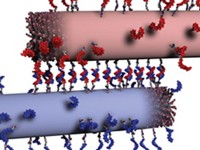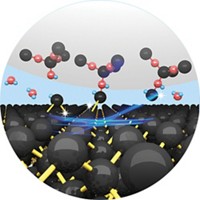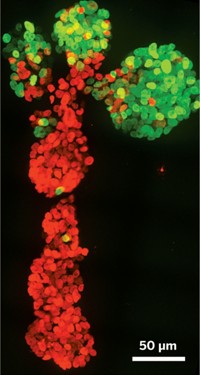Advertisement
Grab your lab coat. Let's get started
Welcome!
Welcome!
Create an account below to get 6 C&EN articles per month, receive newsletters and more - all free.
It seems this is your first time logging in online. Please enter the following information to continue.
As an ACS member you automatically get access to this site. All we need is few more details to create your reading experience.
Not you? Sign in with a different account.
Not you? Sign in with a different account.
ERROR 1
ERROR 1
ERROR 2
ERROR 2
ERROR 2
ERROR 2
ERROR 2
Password and Confirm password must match.
If you have an ACS member number, please enter it here so we can link this account to your membership. (optional)
ERROR 2
ACS values your privacy. By submitting your information, you are gaining access to C&EN and subscribing to our weekly newsletter. We use the information you provide to make your reading experience better, and we will never sell your data to third party members.
Materials
A Little Tug Speeds Up Collagen Cleavage
Mechanical stress increases the rate at which structural collagen is degraded by an enzyme
by Celia Henry Arnaud
January 31, 2011
| A version of this story appeared in
Volume 89, Issue 5
Mechanical stress increases the rate at which structural collagen is degraded by the enzyme matrix metalloproteinase-1 (MMP-1), according to a study by Stanford University chemical engineers (J. Am. Chem. Soc., DOI: 10.1021/ja109972p). Mechanical stress is known to affect the composition and structure of the collagen-containing extracellular matrix (ECM) in embryonic development and some diseases. But how this force exerts its influence is poorly understood. Alexander R. Dunn, Arjun S. Adhikari, and Jack Chai used a magnetic bead assay to measure the effect of force on the rate at which MMP-1 snips collagen. The researchers attached one end of each collagen trimer to a surface and the other end to a magnetic bead. Bead detachment from the surface signaled that MMP-1 had cleaved the collagen. They found that a mechanical load of 13 piconewtons increased the rate of collagen cleavage 81-fold. The team proposes a model in which the mechanical force stretches and unwinds the collagen, allowing MMP-1 to rapidly cleave the collagen triple helix. The findings suggest “a possible role for mechanical force in the regulation of ECM remodeling,” the researchers write.





Join the conversation
Contact the reporter
Submit a Letter to the Editor for publication
Engage with us on Twitter